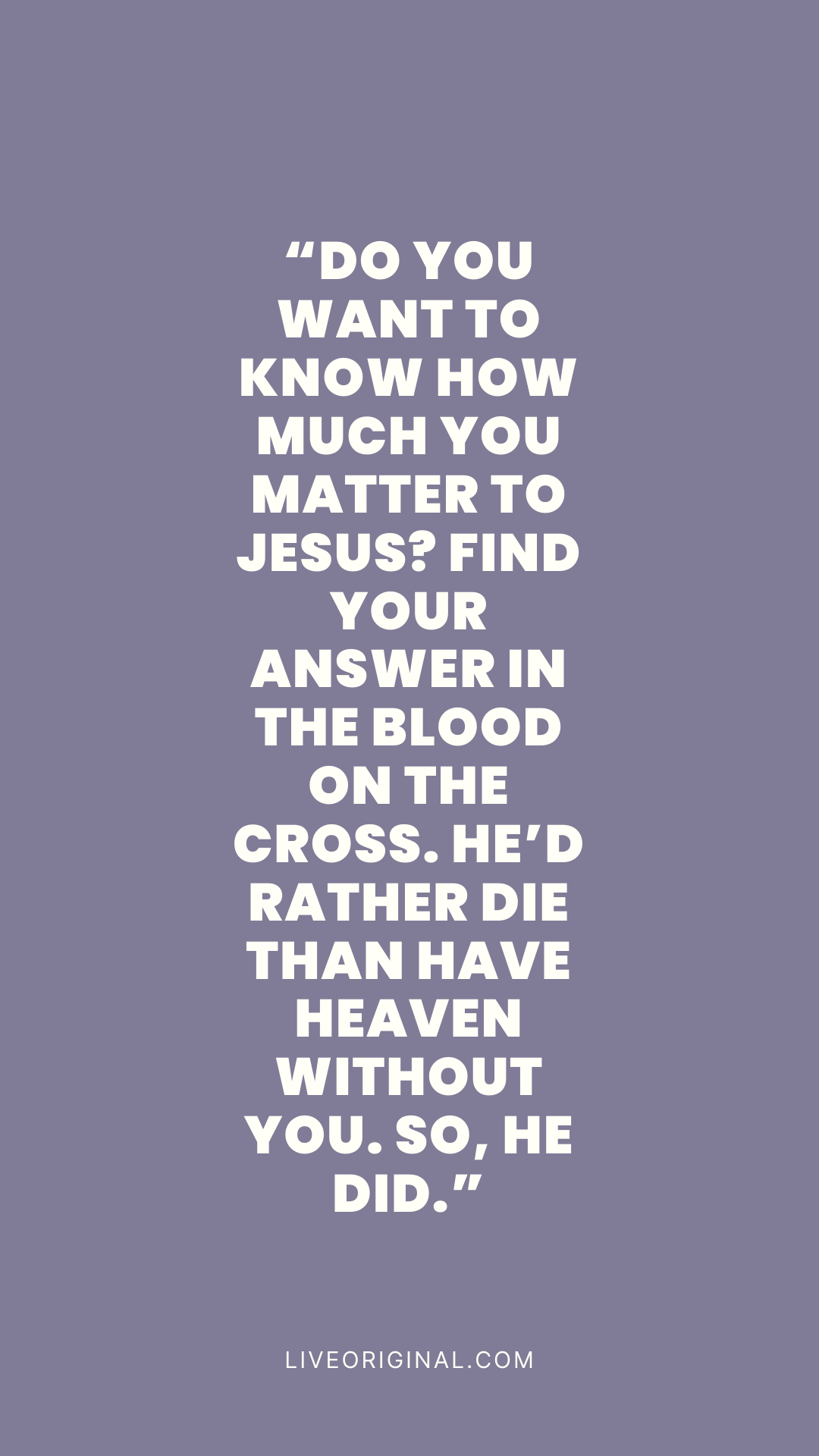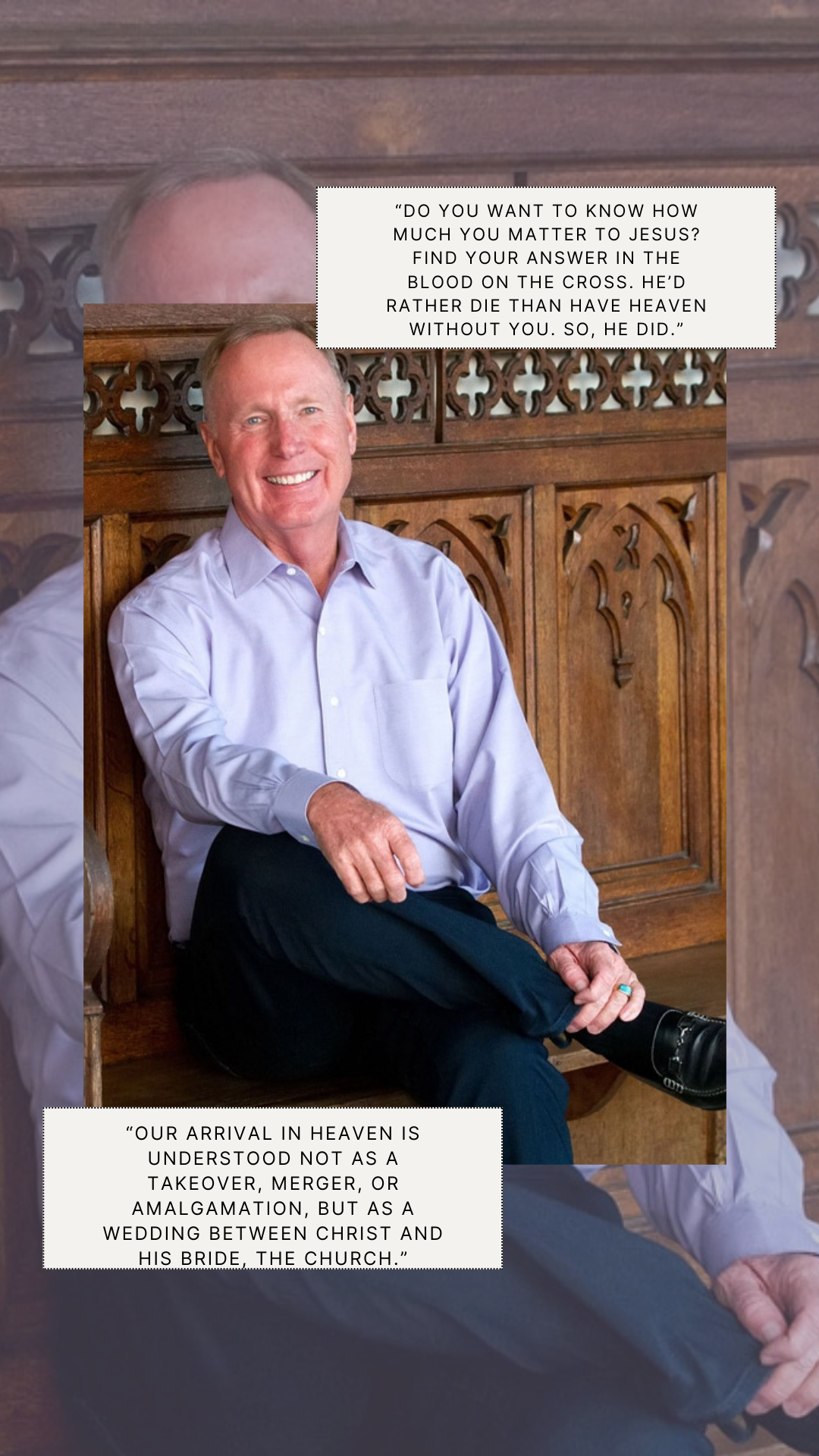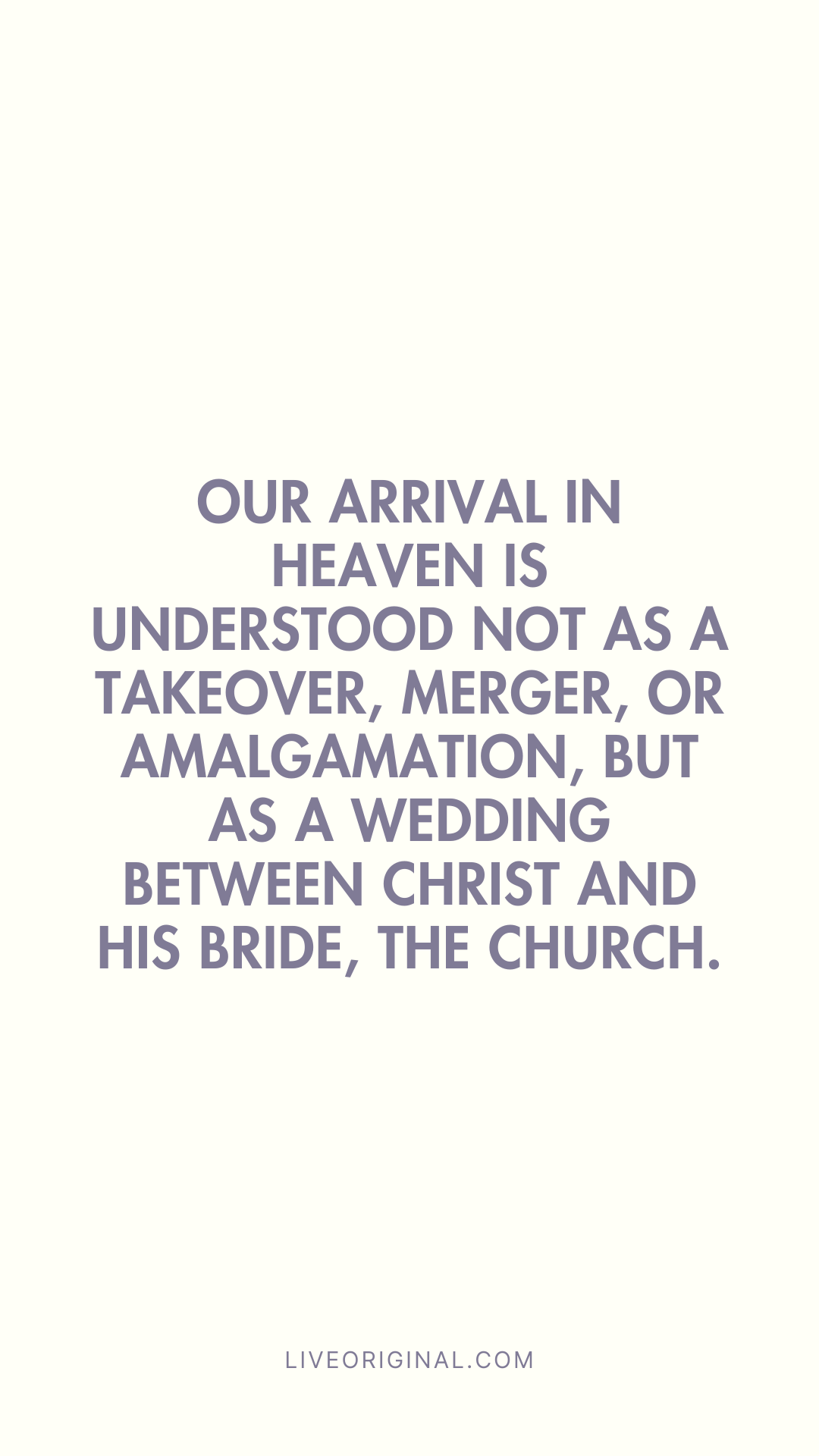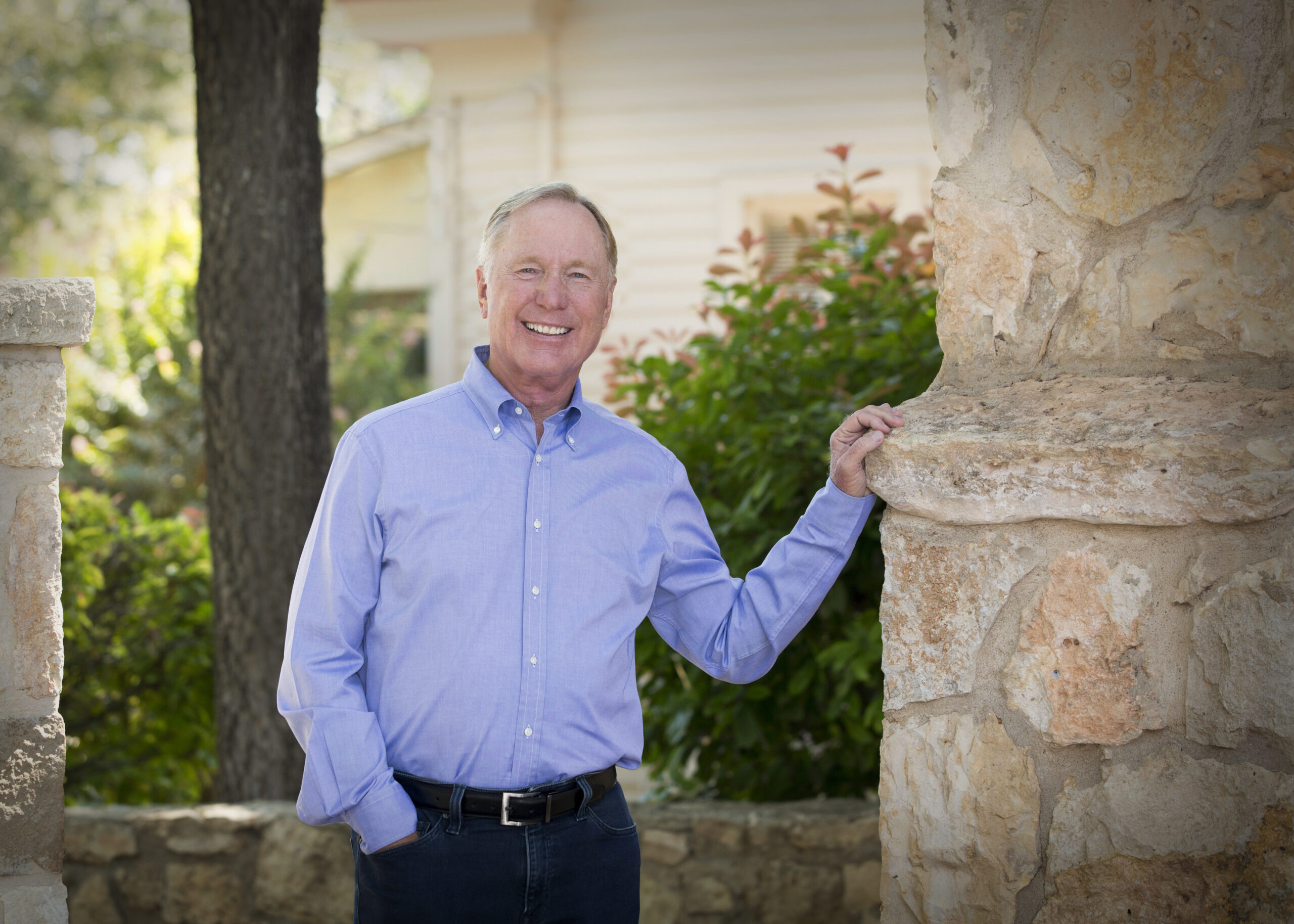
by Max Lucado | Oct 29, 2024 | Featured, LO Library, Love
What is your favorite wedding moment? There are so many from which to choose. From the first downbeat of music to the last crumb of cake at the reception, weddings tug at the heart and fill the photo album. Little boys wear tuxes and carry rings. Misty-eyed moms dab tears with tissues. And when dad gives her to him, we swallow lumps that go down like tough steak.
It may surprise you, then, to learn that one moment is consistently chosen over any other. According to an exhaustive survey by the “Lucado and Associates” research group (conducted over a period of five minutes involving three hallway chats and several good guesses, margin of error 99 percent), there is one event treasured over all others: the entrance of the bride. The organ plays, her mom stands, and the audience jumps to its feet. Even the bridesmaids release a sigh. Why, only minutes before they saw her festooned with curlers and heard her asking for lipstick. But now look at her; from the garland tiara to the satin slippers, she is Cinderella at the ball. We, the peasants, lean forward and gasp. We love the arrival of the bride.
But not nearly as much as Jesus does.
Christ longs to see his bride. His Father has circled the date on the calendar of heaven. The groom is preparing a mansion. Heaven is abuzz with wedding fever. Scripture can’t stop talking about the big event!
“The kingdom of heaven is like a certain king who arranged a marriage for his son” (Matt. 22:2 nkjv).
“The kingdom of heaven will be like ten bridesmaids who took their lamps and went to wait for the bridegroom” (Matt. 25:1 ncv).
“[Jesus] died so that he could give the church to himself like a bride in all her beauty . . .” (Eph. 5:27 ncv).
“The Marriage of the Lamb has come; his Wife has made herself ready. She was given a bridal gown of bright and shining linen . . .” (Rev. 19:7–8 msg).
Look at this language: marriage, bridesmaids, bridegroom, bride in all her beauty, bridal gown. Are we reading the Bible or a bridal magazine? Why does Scripture persist in describing the great day as a wedding day?
The answer comes quickly, doesn’t it? Something happens at a wedding that happens on no other day, in no other event. The intimacy, romance, physical union, complete surrender. Our union with Jesus is not one of master/slave or creator/created. It is husband/wife. Our arrival in heaven is understood not as a takeover, merger, or amalgamation, but as a wedding between Christ and his bride, the church.
Plans are underway for a heavenly wedding. The groom is Christ. The bride is the church.
In the days of Jesus, it fell to the groom to pursue the bride. She might glance as he passed by, she might smile as he turned, but any initiative for marriage was always taken by the groom. As much as she might long for him, she had no hope of a wedding unless he took the first step.
Neither do we. Even if we had the charm to entice heaven, we don’t know the phone number. If we have any hope of standing on the altar, God must make the call. And he did! He took the first step. He left his house and came to ours. “It is not our love for God, it is God’s love for us in sending his Son to be the way to take away our sins” (1 John 4:10).
Jesus is romancing us. Can he exist without us? Of course, but he doesn’t want to. He is smitten, captivated, head-over-heels enchanted with us. He is going to do whatever it takes to win our affection.
In the first century, the groom was required to give money to the father of the bride. The measure of his love was seen in the price he was willing to pay. The measure of Jesus’ love is seen in the same.
“You were bought, not with something that ruins like gold or silver, but with the precious blood of Christ, who was like a pure and perfect lamb” (1 Pet. 1:18, NCV).
“You do not belong to yourselves, because you were bought by God for a price” (1 Cor. 6:19–20 ncv).
Do you want to know how much you matter to Jesus? Find your answer in the blood on the cross. He’d rather die than have heaven without you. So, he did.
Which takes me back to our opening question. What is your favorite wedding moment? Most people select the moment they see the bride. My answer is the moment the groom sees his bride.
As the wedding officiant, I’ve waited backstage with him. By this point, his shirt is sweat soaked. He tugs on his collar. His groomsmen jokingly told him to escape, and he may have given the idea serious thought. But now here he stands and here she comes. When he sees her, I sneak a peek at him. His eyes widen. His smile broadens. He takes a deep breath. And I can read his thoughts: I wouldn’t be anywhere else.
Such will be the thoughts of Jesus when he sees his church. His redeemed saints. His children. His bride. The family for whom he died. The saints with whom he will reign. Clothed in pure grace. From the wreath in her hair to the clouds at her feet, she is royal; she is his princess. “As a man rejoices over his new wife, so your God will rejoice over you” (Isa. 62:5).
BIO:
Max Lucado a pastor, speaker and best-selling author with more than 150 million products in print. His latest book is What Happens Next: A Traveler’s Guide Through the End of This Age (August 2024, Thomas Nelson). He has been pastoring in San Antonio at Oak Hills Church since 1988. Find more at MaxLucado.com
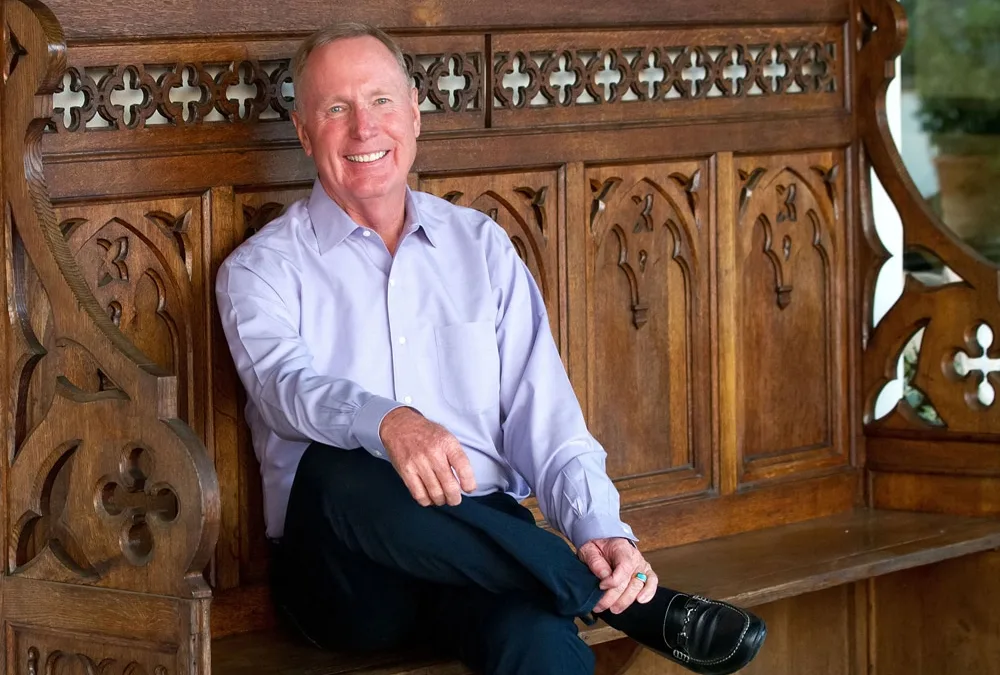
by Max Lucado | Oct 2, 2023 | Forgiveness, Identity, LO Library, Purpose & Calling
I have had my own occasions in which I’ve wrestled with God. Seems we all could account for a divine wrestling match.
One of the most dramatic occurred some twenty years ago; I was about fifty years old. To the casual observer I was on top of the world. Our brand-new church sanctuary was bursting at the seams. We added new members every week. The congregation had very little debt and absolutely no doubt that their pastor was doing a great work.
Our church actually appeared on the list of popular San Antonio attractions. Tour companies bused tourists to our services. The magazine Christianity Today sent a reporter to write a profile on me. The writer called me “America’s Pastor.” Reader’s Digest designated me as the “Best Preacher in America.”
All cylinders were firing. I turned sermons into books. My publisher turned books into arena events. I wrote kids stories and recorded kids videos. It was wild!
What no one knew was this: I was a mess.
Our staff was struggling. Departments were squaring off against one another. Tacky emails were flying like missives. Ministers were competing for budget dollars. A couple of invaluable employees, weary from the tension, quietly resigned. And since I was the senior pastor, it fell to me to set things in order.
Yet, who had time for intramural squabbles? I had lessons to prepare. The problem with Sundays is that they happen each week! In addition I led a midweek prayer service and taught a weekly early morning men’s gathering. Deadlines were coming at me from all sides. I needed time to think, to pray, to study.
What’s more (or consequently) I was unhealthy. My heart had the rhythm of a Morse code message: irregular and inconsistent. The cardiologist diagnosed me with atrial fibrillation, put me on medicine, and told me to slow down. But how could I?
The staff needed me.
The pulpit required me.
The publisher was counting on me.
The entire world was looking to me.
So I did what came naturally. I began to drink.
Not publicly. I was the guy you see at the convenience store who buys the big can of beer, hides it in a sack, and presses it against his thigh so no one will see as he hurries out the door. My store of choice was on the other side of the city lest I be seen. I’d sit in the car, pull the can out of the sack, and guzzle the liquid until it took the edge off the sharp demands of the day.
That’s how “America’s Pastor” was coping with his world gone crazy.
Life comes with inflection points, junctures in which we know our world is about to change. Events that time-stamp life. Crossroads that demand a decision. Go this way? Or that? Everyone has them. You do. I do. Jacob did. Jacob’s came with a name: Jabbok. It is the location where Jacob wrestled with an angel and walked away with a lame hip.
My Jabbok, as it turned out, was a parking lot. The wrestling match lasted for the better part of an hour on a spring afternoon. I told God I had everything under control. The staff issues were manageable. The deadlines were manageable. The stress was manageable. The drinking was manageable. But then came a moment of truth. God didn’t touch my hip, but he spoke to my heart. Really, Max? If you have everything together, if you have a lock on this issue, then why are you hiding in a parking lot, sipping a beer that you’ve concealed in a brown paper bag?
Jabbok. That moment in which God brings you face-to-face with yourself, and what you see you don’t like.
Jabbok. When you use all your strength, only to find your strength won’t give you what you need.
Jabbok. A single touch on the hip that brings you to your knees.
Jabbok. Jab. Buck.
Yet even in the moment, or especially in that moment, God dispenses grace. Look what happened next to Jacob.
“What is your name?” the man asked. He replied, “Jacob.” (Gen. 32:27 NLT)
On the page of your Bible, there is scarcely a space between the question and the reply. In real time, however, I sense a pause, a long, painful pause. What is your name? There was only one answer, and Jacob choked to spit it out. My . . .name . . . is . . .Jacob. This was a confession. Jacob was admitting to God that he was, indeed, a Jacob: a heel, a cheater, a hustler, a smart operator, a fraud. “That’s who I am. I’m a Jacob.”
“Your name will no longer be Jacob,” the man told him. “From now on you will be called Israel, because you have fought with God and with men and have won.” (v. 28)
Of all the times to be given a new name. And of all the times to be given this name. Israel means “God fights” or “God strives.” The name celebrated, and celebrates, God’s power and loyalty.
The old Jacob fought for himself. The old Jacob relied on his wits, trickery, and fast feet. Jacob, himself, took care of himself. The new Jacob had a new source of power: God. From this day forward each introduction would be a reminder of God’s presence. “Hello, my name is God fights.” Each call to dinner a welcome instruction, “God fights, it’s time to eat.” His email address was godfights@israel.com. His business card reminded all who read it of the true power of Israel: “God fights.” His old name reflected his old self. His new name reflected his new strength. “God fights.”
What grace.
God extended it to me. Abundantly. I confessed my hypocrisy to our elders, and they did what good pastors do. They covered me with prayer and designed a plan to help me cope with demands. I admitted my struggle to the congregation and in doing so activated a dozen or so conversations with members who battled the same temptation.
We no longer see tour buses in our parking lot, and that’s fine with me. I enjoy an occasional beer—but for flavor, not stress management. And if anyone mentions the “America’s Pastor” moniker, an image comes to mind. The image of a weary, lonely preacher in a convenience store parking lot.
God met me there that day. He gave me a new name as well. Not Israel. That one was already taken. But “forgiven.” And I’m happy to wear it.
Since entering the ministry in 1978, Max Lucado has served churches in Miami, Florida; Rio de Janeiro, Brazil; and San Antonio, Texas. He currently serves as Teaching Minister of Oak Hills Church in San Antonio. He is the recipient of the 2021 ECPA Pinnacle Award for his outstanding contribution to the publishing industry and society at large. He is America’s bestselling inspirational author with more than 145 million products in print. His latest book is God Never Gives Up On You: What Jacob’s Story Teaches Us About Grace, Mercy and God’s Relentless Love. Check out more at www.MaxLucado.com!

by Max Lucado | Sep 15, 2022 | Life Advice, Testimonies
Brad Haugh still remembers the sound of his heartbeat. It thundered in his chest. Two hundred beats a minute. With a fire behind him and a ridge ahead of him, this smoke jumper needed every pulse of power his heart could give in order to escape with his life.
He was one of forty-nine firefighters caught in a wildfire on the spine of Storm King Mountain, seven miles west of Glenwood Springs, Colorado. Fourteen of them lost their lives. They were overrun by flames that Haugh estimated to reach a height of three hundred feet. The wall of heat required only two minutes to race a quarter of a mile up the mountain, reaching a speed of eighteen miles per hour. Temperatures reached two thousand degrees, hot enough to incinerate the tools dropped in its path.
“People were yelling into their radios, ‘Run! Run! Run!’ I was roughly one hundred and fifty feet from the top of the hill, and the fire got there in ten or twelve seconds. I made it over the top and just tumbled and rolled down the other side, and when I turned around, there was just this incredible wall of flame.”
Few of us will ever find ourselves trying to outrun a fire. But all of us have had encounters with fire. We’ve extended cold hands over the warm campfire. We’ve lifted a burning torch into the dark night. We’ve ignited the blue flame of the gas stove and beheld the red glow of hot metal. Fire is a part of life. For that reason when fire and the Holy Spirit appear in the same sentence, we take note.
“He will baptize you with the Holy Spirit and fire” (Matt. 3:11). This is how John the Baptist introduced his cousin to the world. We might have expected a more, can we say, positive outlook. “He will baptize you in happy feelings.” “He will lift your self-image so you will feel good about yourself.” “He will make it easier for you to have friends and deal with conflict.” But baptize you with the Holy Spirit and fire? Such was the job description of Jesus.
Please note that Jesus is the giver of the Holy Spirit fire. Do you desire the Spirit? Then turn to Christ. He will plunge, immerse, and submerge you in the very being of the Spirit. Just as Jesus stepped out of the river dripping the Jordan, so we step forth into the world drenched in the Spirit of heaven. Every part of us, top to bottom, is designed to be blessed by the Holy Spirit and with fire.
The soul baptized in the Spirit is a soul ablaze.
Fire is a chemical reaction that releases energy in the form of light and heat. In the case of a wood fire, the energy was originally derived from the sun and stored in the plant as cellulose and lignin. Heat from another fire or a lightning strike converts the cellulose into flammable gasses, which are driven out of the wood and combined with oxygen. If there is enough air, fuel, and heat, the fire will keep advancing.
Can’t something similar be said about the Spirit of God? If we let him do his work, he will not be set back. He will not be put out. He will not be quenched.
Yet this flame is never intended for our harm. Quite the contrary. Everything that is good about a fire can be listed as a blessing of the Holy Spirit.
Fire is a purifying force. My mom, a nurse, taught us this principle when we were very young. She used a needle on our skin to remove a thorn or lance a sore. She did so after she had twirled the sharp tip in the hot flame of a match. “I want to kill the germs,” she explained. Fire does this. It purifies.
The Holy Spirit is the ultimate purifier. He comes to eradicate the defilement from the vessel. Are we fit to serve as a temple of the Holy Spirit? We need the cleansing, sanctifying work of heaven to prepare us for this assignment. So the Spirit comes not just to purify but to beautify, not just to cleanse but to adorn.
This refining fire is not always pleasant. It can come in the form of discipline or disappointment, setback or loss. Yet the fire of the Spirit produces ultimate good. Do we not see this in nature? The American Forest Foundation lists several benefits of forest fires. They . . .
- release seeds or otherwise encourage the growth of certain tree species, like lodgepole pines;
- clear dead trees, leaves, and competing vegetation from the forest floor so new plants can grow;
- break down and return nutrients to the soil;
- remove weak or disease-ridden trees, leaving more space and nutrients for stronger trees;
- keep tree stands thin and open, letting more sunlight in so trees stay healthier; and
- improve wildlife habitat.ii
A fire, managed and contained, results in ultimate good for the vegetation. When Jesus baptizes us in the fire of the Spirit, it is so we can bear better and more abundant fruit for him.
Welcome this refining fire. Invite him to finish this work in your heart. “Though outwardly we are wasting away, yet inwardly we are being renewed day by day” (2 Cor. 4:16 niv). In the next life your heart will have been refined of all dross. Jealousy, gone. Greed, gone. Guilt, gone. Regrets, anxiety, and pride, gone forever. This time on earth is a time of preparation, and God’s person of preparation is the Spirit. Let him do his work in you. Let him set your soul on fire.
Since entering the ministry in 1978, Max Lucado has served churches in Miami, Florida; Rio de Janeiro, Brazil; and San Antonio, Texas. He currently serves as Teaching Minister of Oak Hills Church in San Antonio. He is the recipient of the 2021 ECPA Pinnacle Award for his outstanding contribution to the publishing industry and society at large. He is America’s bestselling inspirational author with more than 145 million products in print. His latest book is Help is Here: Finding Fresh Strength and Purpose in the Holy Spirit.
Excerpt taken from Help Is Here: Finding Fresh Strength and Purpose in the Power of the Holy Spirit by Max Lucado (Thomas Nelson Publishers: Nashville, Tennessee ©️ 2022).

by Max Lucado | Dec 21, 2021 | Life Advice, Wisdom
There he was, nearly 80 years old, living in a sleepy village outside Rome, Italy, with his books and seven cats. His wife had been dead for seven years and his only daughter worked in Afghanistan. He lived a silent rhythm, seldom venturing out, rarely speaking to others.
He was lonely. And on the day, he decided to do something about it, Giorgio Angelozzi put himself up for adoption. That’s right – the octogenarian sought a family. He placed a classified ad in Italy’s largest daily newspaper: “79-year-old seeks family in need of a grandfather. Would bring 500 Euros a month to a family willing to adopt him.”
The ad changed his life.
The paper ran a front-page article about him. Inquiries poured in from Colombia, New Zealand, and New Jersey. Angelozzi was an overnight celebrity. He we went from having nothing but time, to having scarcely enough time to handle interviews and requests.
A pop star responded. A millionaire offered servants and a seaside villa. But one letter stood out, Angelozzi explained, because every member of the family – father, mother, sister, brother – had signed it.
Last reports have him happily settled in their ground floor apartment, taking walks in the garden, helping with dishes and homework. “I couldn’t have chosen better,” he says, “Maybe it was luck, or maybe it was God looking after me, I don’t know.”
The latter option makes the best sense. Loneliness is never the product of heaven. Among our Maker’s first recorded words were these: “It is not good for man to be alone.” (Gen. 2:18 NIV).
He gets no argument from us. We may relish moments of solitude – but a lifetime of it? No way. Many of us know the language of loneliness.
- No one knows me. People know my name, but not my heart. They know my face, but not my feelings. I have a social security number, but I don’t have a social life or a soul mate. No one really knows me. Moreover:
- No one’s near me. The last two years have taught us the meaning of words like social distancing and quarantine- leaving us lonelier than ever. We want someone to be near us. Ever since Eve emerged from the bones of Adam – we’ve been reaching out to touch one another. We need to make a connection. And, we need to make a difference. The anthem of the lonely heart has a third sad chorus:
- No one needs me. The kids used to need me…The business used to need me…My spouse never needs me…The lonely fight feelings of insignificance. Desiring to be remembered, one wealthy mid-west man had an ATM machine installed at his gravesite. When his heirs wanted cash from his estate, they had to go to his grave – enter a PIN number and take the receipt to the bank. He didn’t want to be forgotten. The lonely think they will be.
What do we do? How do we manage thoughts of isolation? How do we cope with loneliness? Some stay busy, others stay drunk. Some buy pets, others buy lovers. Some seek therapy. And a few, a precious few, seek God.
This is God’s plan. His ultimate solution for loneliness isn’t found in a bar or a dating service, a spouse, or a social club. God’s cure for the lonely heart lies in a manger. The babe of Bethlehem. Immanuel. Remember the promise of the Angel? “Behold, the virgin shall be with child, and bear a Son, and they shall call his name ‘Immanuel’, which is translated ‘God is with us’.” (Mt. 1:23 NKJV).
Not content to be an “above us God” or a “somewhere in the vicinity” God. He came as the “with us God”. God with us.
Will you say these three words aloud with me? God with us.
God with us. Not just: “God with the rich” or “God with the religious”. But God with us. All of us. God with Russians, Germans, truck and taxi drivers, librarians, and libertarians. God with us.
God with us. We love the word, with. “Will you go with me?” We ask. “To the store, to the hospital, through my life?” God says he will. “I am with you always,” Jesus said before he ascended to Heaven, “to the very end of the age.” (Mt. 28:20 NCV). Search for restrictions on the promise, you’ll find none. Nothing like: “I’ll be with you, if you behave, when you believe. I’ll be with you on Sundays, in worship, at Mass.” No, none of that. No “withholding” tax on his “with” promise. He is with us.
God with us.
Let this be the Christmas you come home to Christ. I’d like to close this article with a prayer – a prayer of decision. A decision to follow Jesus. Many of you reading this have made this decision already. Others of you have not – but you want to. Whether you are re-affirming an earlier decision – or making a first decision – will you pray with me?
“Immanuel – you are with us. You are with me. You became a person and took on flesh. You became a savior and took on my sin. I accept your gift. I receive you as my Lord, Savior, and friend. Because of you, I’ll never be alone at Christmas again. AMEN”
Max Lucado is a San Antonio pastor and best-selling author. His most recent book is You Were Made for This Moment: Courage for Today, Hope for Tomorrow (September 2021, Thomas Nelson). He is also the host of the “Max Lucado Encouraging Word” podcast. Visit his website at www.MaxLucado.com or follow him on Twitter: @MaxLucado











